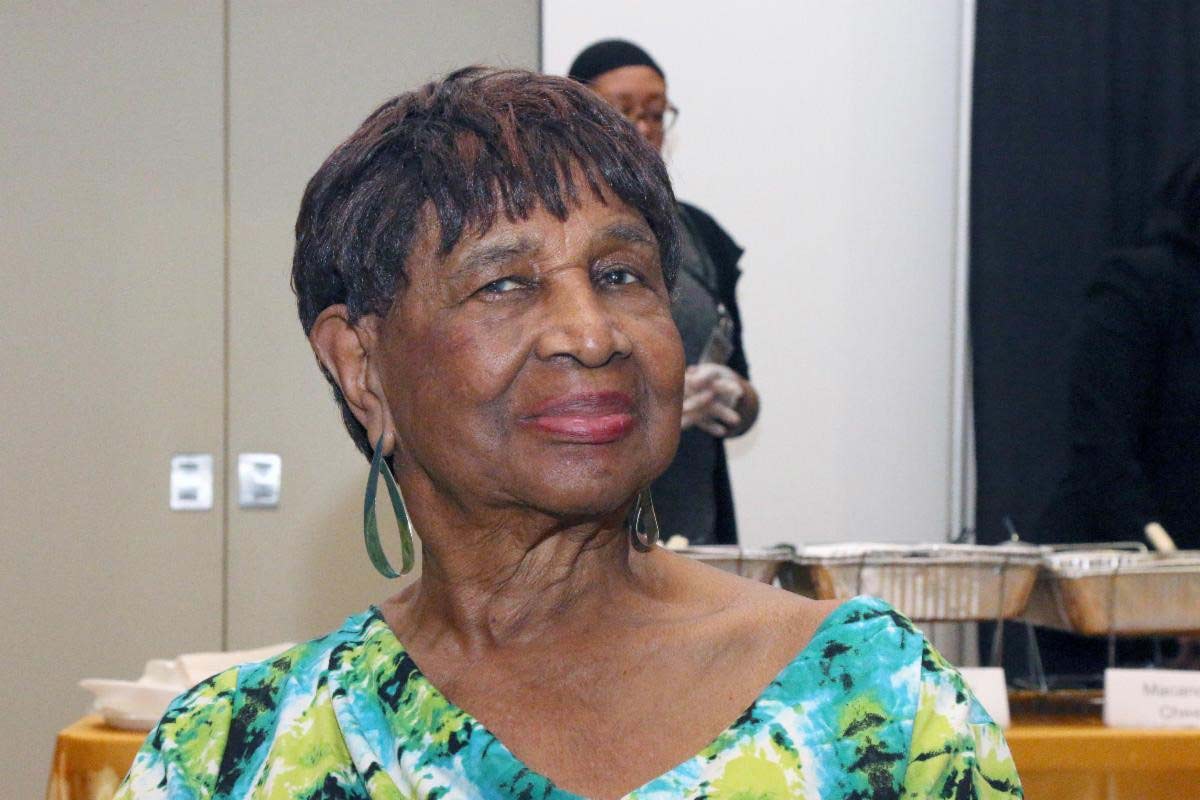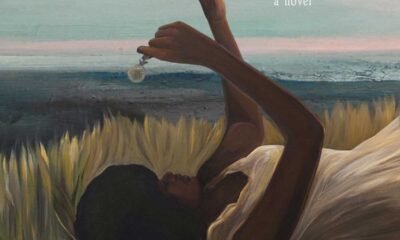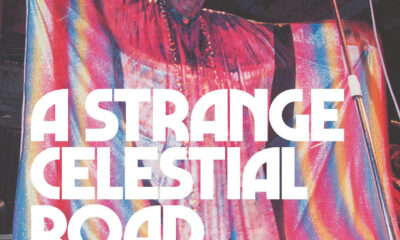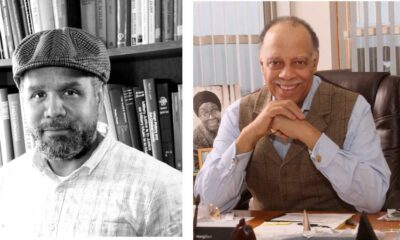Obituary
Louise Meriwether

Novelist, Journalist, Literary Activist, Transitioned October 10, 2023 at 100
“We who are Black are at an extraordinary point of choice within our lives. To refuse to participate in the shaping of our future is to give it up. Do not be led into passivity either by false security . . . or by despair. . . Each of us must find our work and do it.
Audre Lorde, “Learning from the 60s.” (Bracey 660) She laughed intermittently throughout the interview, a dynamic woman, novelist, journalist,
children’s author, historian, activist, and educator. “You know I don’t remember much,” Louise
Meriwether said, but halfway through the interview she shared with me a fourteen-page autobiographical statement that she had written to chronicle the collection of her papers which were stored at Emory University, not her first choice for her archives, but Emory had made an offer that unfortunately could not be matched with that of the Schomburg Center for Research in Black Culture. This 95-year-old woman was awesome and I felt privileged and honored to interview her. I knew that I was in for an unforgettable interview with a writer who had found her work and was doing it.
Louise Meriwether was born May 8, 1923, in Haverstraw, New York. I conducted this interview with her in 2018, shortly before the Center for Black Literature awarded her a lifetime achievement award at the 14th National Black Writers Conference. We began the interview with a discussion of her award-winning book, Daddy Was a Number Runner, published in 1970 by Prentice Hall. I recounted how my uncle had made his living as a number runner in the Bronx and how number runners were an important staple of inner-city Black communities. When I asked her what was the motivation and premise for writing the book, she laughed and told me to read the book. Thus began a lively two-hour interview.
Although she is known by most of the general public for her coming-of-age novel Daddy Was a Number Runner, my interview and a review of her life’s work revealed that Louise Meriwether is deeply committed to using writing and activism to advocate for social justice and to inform the public and young people about truths and historical facts that will help to influence their present and shape their future. Meriwether’s footprints are in many places. Her family came north as a result of the Depression and were part of the Great Migration, chronicled so impressively by Jacob Lawrence’s Migration Series, a sequence of paintings depicting the mass movement of African Americans from the rural south to urban cities. After moving to Philadelphia, Haverstraw, NY, and then Brooklyn, they eventually settled in Harlem on 5th Avenue between 116th and 117th Street.
Meriwether was a voracious reader as a young child. She read everything from children’s books such as The Five Little Peppers and Huckleberry Finn to novels by Black writers such as Jessie Redmon Fauset’s The Chinaberry Tree: A Novel of American Life and Claude McKay’s Home to
Harlem. This was 1934 or 1935; books by Black writers were limited in the public libraries. She was diligent in reading what was available in the colored section of the 124th Street library. In recounting why she wanted to write, she stated: “People have different parts of their brain. The older you get the more you appreciate the marvels of the brain; we don’t think about it. Some people have to dance; some have to sing. If they’re not doing what they have a gift for, then they are not happy. . . I love writing and I used to write poems”.
Upon entering high school, she did not opt for the vocational trades advocated by her counselors. She wanted to be a secretary and was among one of the first Black women to graduate from Central Commercial High School in lower Manhattan. However, she could not get a position as a secretary. This was not a position offered to Black women. Meriwether was not deterred; this was shortly before the war and since she could not get a job in her field, she took a civil service exam and obtained a job working for the Navy Department in Washington DC. When she returned to New York three years later, she decided that she wanted a bachelor’s degree. In order to meet the minimum academic requirements she enrolled in a prep school and although the path of study was for two years, she met the requirements to enter NYU one year later.
Because of her love for writing, she wanted to take classes in literature and creative writing so she decided to major in English.
After receiving her bachelor’s degree and marrying Angelo Meriwether, her first husband, Meriwether moved to Los Angeles and worked as a journalist for the Los Angeles Sentinel. During this time, she honed her love of writing and interviewed and met writers and artists. One of the highlights of her interview was meeting James Baldwin, with whom she later became close friends. This was the height of the Civil Rights Movement and a prelude to the 1965 Watts Riots which lasted for six days in South-Central Los Angeles. The riots resulted in the death of 35 persons, the injury of 1032, the arrests of nearly 4000 persons, and the destruction of nearly
$40 million worth of property. This riot foreshadowed the riots that would occur in Detroit, in Newark, and in many urban cities after the tragic murder of the Reverend Dr. Martin Luther King Jr. in 1968. The causes were many and illustrated the plight of a country with an institutionalized racist prison system, a racist police force, a poor educational system, high unemployment, and a lack of supportive services for Black youth in urban communities.
The country was stunned by the reality that despite the passage of the Voting Rights Act of 1965 prohibiting racial discrimination, this country was still scarred by years of racism. It is indeed ironic that the Voting Rights Bill was passed a few days before the riots, most definitely a reality check on this nation.
The city’s response to the Watts Riot provided Meriwether with a surprising and extraordinary opportunity. While living in Los Angeles she had gone to UCLA and obtained a master’s degree in journalism. She was now overqualified for any jobs but journalism and teaching. However, after the Watts Riot, she was called by Universal Studios and offered a job as a storyline editor, thus becoming the first Black storyline editor in the history of Hollywood.
Left with the lingering scars from the riots, Los Angeles had much work to do. Screenwriter Budd Schulberg heeded the call and rose to the occasion. In an attempt to do something to heal the city’s racial divide, he formed the Watts Writers Workshop, an interracial group of writers
who met to workshop their writing and to discuss the social and political issues of that day. Louise Meriwether joined the workshop and met many writers including the poet Quincy Troupe. Meriwether recounted how when Schulberg could not run the workshop, he often asked her to lead the workshop in his absence. The Workshop received widespread media and national attention and was awarded grants.
The success of the workshop motivated Schulberg to ask Fred Hudson, playwright and former staff writer for Paramount Pictures, to lead a parallel workshop in New York City. This workshop became the Frederick Douglass Creative Arts Center. In addition to hosting writers’ workshops, the Center presented staged readings, produced an annual Black Roots Festival of Poetry, Prose, Drama, and Music, and was an established forum for leading Black writers to read or perform their work.
Through her journalism, literary work, and activism in literary, social, and political organizations, Louise Meriwether used writing as a means to inform the public and to raise awareness about social and political issues. One organization, the Black Anti-Defamation Association (BADA), was formed in response to the publication of the novel Confessions of Nat Turner by William Styron and the potential development of a screenplay based on the book. The novel received excellent reviews, appeared on the best-seller list, was a book of the month selection, won a Pulitzer Prize, and was sold to 20th Century Fox. Meriwether was one of a group of Black public intellectuals, writers, and artists who vehemently opposed the positive praise and reception of this book and formed a coalition whose primary purpose was to ensure that the content of the book was accurate. Co-founded by John Henry Clarke and Louise Meriwether, the organization contended that Styron had portrayed Nat Turner as a man who hated Black people, who loved white women, and who was homosexual. They wrote a five-page letter to producers, went through the book and identified all the discrepancies related to the life of Nat Turner, and told producers that they could not make the movie with these discrepancies. Their main point was that Styron’s depiction of Nat Turner was contrary to their historical knowledge about Nat Turner. Additionally, Beacon Press published a slim volume of essays called “William Styron’s Nat Turner: Ten Black Writers Respond.” Almost overnight, “The Confessions” became the center of a debate. During my interview with her, Meriwether recounted how organizations such as the NAACP, the National Urban League, SNCC, and churches took out a back page ad in the Hollywood Reporter on April 18, 1968 – and stated that any Black actor who played in the movie was traitor.
The book was scheduled to be made into a movie (starring James Earl Jones, and directed by Norman Jewison), but it ran into problems when they were met by angry Black and White protesters while scouting for locations in Virginia. Eventually, as a result of the feedback from the public and under pressure from the Coalition represented by actors such as Ossie Davis and Godfrey Cambridge, Twentieth Fox dropped the project. Meriwether underscored how this reflected the power of informing the public with facts. Actors, entertainers, activists, and the public united and were able to effect change.
Meriwether’s activism continued. She was also a member of CORE and after graduating from College, she went to the South and worked with CORE and the Deacons for Defense to defend Bogalusa, Louisiana from the KKK. She also helped to establish some freedom schools in the South. In 1971, she became a co-founder of the Committee of Concerned Blacks, along with John Henry Clarke, and helped to spearhead organized resistance against having writers, artists and Black entertainers visit South Africa during the anti-apartheid movement. South Africa was offering huge sums of money to recruit Muhammad Ali, Sammy Davis Jr., Aretha Franklin, and Eartha Kitt. The organization wrote press releases informing the community and wrote to over 100 black newspapers. Although they prevailed and kept Muhammad Ali from going to South Africa, Eartha Kitt and Roy Wilkins, head of the NAACP did travel to the country. The organization wrote an article rebuking Wilkins and he eventually recanted his stance. Meriwether also published with Jayne Cortez, a brochure, Black Americans Stay Out of South Africa.
Members of the Congress such as Charles Rangel, Shirley Chisholm, John Conyers, and Ron Dellum were in support of this movement as well as activists, writers, and artists such as Ralph Abernathy, Amiri Baraka, Betty Shabazz, Angela Davis, Stokely Carmichael, John Oliver Killens, Hoyt Fuller, Mari Evans, Sonia Sanchez, Askia Toure and others. They also supported African Liberation Day in May 1972. An outcome of African Liberation day was a resolution calling for the continuing cultural boycott of South Africa.
In the meantime, Meriwether was still an active participant in the Watts Writers Workshop. In 1967, the Antioch Review published a special Watts Writers Workshop edition which featured an excerpt of her soon-to-be novel, Daddy Was a Number Runner. Meriwether stated in her interview with me that she wanted to write a story of Black adolescents. All groups write their own stories she stated. She also admitted that parts of the novel were autobiographical.
An editor in NY read the excerpt and wrote to Meriwether asking if she would send the novel when it was finished. Meriwether sent the novel upon completion and it was published by Prentice Hall in 1970. James Baldwin wrote the foreword and Paule Marshall wrote an extraordinary glowing review in the NY Times.
It is noteworthy that Daddy Was a Number Runner was published during the Black Arts Movement (BAC), an outcome of the Civil Rights and Black Power Movements which viewed art and politics as inseparable. Larry Neal, in his essay on the Black Art Movement, defines the movement as “radically opposed to any concept of the artist that alienates him from his community. Black Art is the aesthetic and spiritual sister of the Black Power Movement.” (Bracey 55). Both movements related to the overall concept of the African American’s desire for self-determination and nationhood. In Daddy Was a Number Runner, Meriwether, like her sister writers, Maya Angelou (I Know Why the Caged Bird Sings), Toni Morrison (The Bluest Eye), and Alice Walker (The Third Life of Grange Copeland), writes a novel which illustrates that nation building cannot occur without discussing the relationships between Black men and Black women and addressing the specific realities of their experiences.
Amanda J. Davis underscores the significance and symbolism of Daddy Was a Number Runner in her essay, “To Build A Nation: Black Women Writers, Black Nationalism and the Violent Reduction of Wholeness.” Davis recounts how Daddy Was a Number Runner presents a very
true reality for young girls, the fact that “the threat and prevalence of violence was and continues to be something that girls are often introduced to at a young age and that sadly informs aspects of female adolescence for thousands of girls globally (28). Twelve-year-old Francie, the protagonist of the novel, must navigate the streets of Harlem where she witnesses prostitutes and pimps and is faced with sexual advances by white men who will give her food or money “for a feel.” Thus, in the midst of the Black Arts Movement, young girls were still being victimized, vulnerable and exploited. In other words, despite the call for poetry, plays, fiction, art, and music that projected African-centered cultural nationalism, Meriwether felt compelled to tell an authentic story that revealed the ways in which young Black girls and their families struggled to survive in a racist society plagued by economic hardships and psychological despair.
Meriwether relocated to New York when the novel was published and joined the Harlem Writers Guild founded in 1950 by John Oliver Killens, Dr. John Henry Clarke, Rosa Guy, Willard Moore, and Walter Christmas. While there she also met Maya Angelou and Paule Marshall. She continued to write essays and stories that conveyed strong fact-based messages and wrote three historical novels for children: The Freedom Ship of Robert Smalls, a biography of the slave who escaped to freedom with his family and other runaway slaves on a captured Confederate gunboat; The Heart Man: Dr. Daniel Hale Williams; a biography of the black surgeon who performed the first successful heart operation in 1893; and Don’t Ride the Bus on Monday; The Rosa Parks Story, a biography of the black woman whose refusal to give up her seat on the bus marked the beginning of the civil rights movement.
An eclectic writer, journalist, essayist, novelist, children’s author and biographer Louise Meriwether continued to find many paths into writing. Her writing topics and subjects ebbed and flowed with the movements in the country. The Black Arts Movement was waning and Black readers began to see a rise in black commercial fiction. In her essay, “Thirty Years of Black American Literature and Literary Studies, Farah Jasmine Griffin notes that the presence of Terry McMillian’s book Waiting to Exhale on the New York Times Best Sellers list for 24 weeks, the expansion of the black middle class, and the rise in Black Book Clubs, Black Bookstores and Black imprints of major publishers provided evidence of a new market.
Meriwether benefitted from this new market. She wrote Shadow Dancing, a contemporary Black women’s novel in 2000. The novel was published by One World Ballantine, an imprint of Random House.
Shadow Dancing focuses on the complicated love triangle of Glenda Jackson, a striking, self- confident and successful magazine writer at BlackSpeak Journal, Mark Abbit, the charismatic director of the Aldridge Ensemble Theatre, a refurbished old movie house in Harlem, and in the backdrop, Roxane, Mark’s former wife who remains in the shadows as Glenda and Mark struggle to have a healthy relationship. Glenda is protective of her emotional life and also drawn to the enigmatic Mark who is haunted by memories of Vietnam and committed to maintaining cultural integrity in Black theatre. A natural historian, Meriwether provides a portrait of the history of Black theatre in Harlem. The reader learns of the African Grove Theatre, the American Negro Theatre, and the federal playhouses featuring Black dramatists. Sidney Poitier,
Harry Belafonte, Hilda Simms, Lorraine Hansberry, James Baldwin, Ossie Davis, and Amiri Baraka are within these pages.
Always devoted to providing accurate depictions of Blacks in America, Meriwether decided to expand her children’s story of The Freedom Ship of Robert Smalls into an historical fiction adult novel. Fragments of the Ark: A Novel is an ambitious and well-researched book that accentuates the lifetime journey of Robert Smalls’s (renamed Peter Mango in the novel) quest for freedom from slavery. Meriwether spent 20 years writing the novel.
A runaway slave, Peter commandeers a gunboat from the harbor of Charleston, South Carolina in the early part of the Civil War and transports his family and a group of slaves to the Union lines in South Carolina. He becomes captain of the ship and spends the remaining years of the war transporting both white and black Union soldiers up and down the coast of South Carolina. He became an abolitionist, speaker, and met President Lincoln. Told from the perspective of an enslaved man, the novel is a testament to the many who attempted to escape slavery. It is a counter-narrative of what is traditionally taught in the school system and also underscores how Black soldiers were the determining factor in the outcome of the Civil War. Lincoln’s dilemma with respect to emancipating the slaves and enlisting them in the army is accurately portrayed.
Through Peter’s story, the reader becomes a witness to the horrors of the war and to the mistreatment and injustices faced by the Black men who served in the armed forces. The novel is both a gripping account of the quest for liberation by the enslaved and a scathing indictment of a system that propelled the nation into a major unparalleled civil war. It should be in the library of every school and college in this nation.
Throughout her life, Meriwether has also been a consummate traveler and conference presenter. She attended the Second World Black Festival of Arts and Letters in Lagos, Nigeria in 1977.
She has visited with Randy Westin in Morocco, traveled to Bombay, India, and along with other artists, been a guest of the Cuban Government. She is good friends with Maryse Conde, the French Guadalopean novelist and scholar, and has traveled to Guadalupe with her. In 1995, she participated on a panel with the late Calvin Hernton, the renowned sociologist, poet, and writer at the 12th International Book Fair in London. She participated in the Gwendolyn Brooks Center for Black Literature and Creative Writing Conference at Chicago State and the 19th Annual Zora Neale Hurston Festival in Eatonville, Florida.
Meriwether was a founding member and Vice President of the International Organization of Women Writers of Africa Yari Yari Conference held at New York University in 1997. As a follow-up to that Conference, she wrote: “The Impact of New Technologies and Globalization on Literature, Publishing and Distribution in the African Diaspora.” The essay, featured in The Black Scholar in Summer/Fall 2008, is a powerful message on the need for a collective response to the control of the publishing industry by media conglomerates. It also calls to attention the ways in which writers and activists such as Ken Soro Wiwa and Ngugi wa Thiongo have been silenced, imprisoned, and/or killed. Meriwether calls on activists to continue to be truth sayers and to take the message to the people. In 2002 at age 79, she was one of the 600 arrested who protested the International Monetary Fund. They were hauled in school buses, handcuffed and fingerprinted.
Always an activist, Meriwether has marched with the Granny Peace Brigade who insist on peace, domestically and globally. Her awards and honors include the Center for Black Literature Award in Recognition of Her Commitment to a Lifetime of Literary Activism (2018); the American Book Awards (Before Columbus Foundation) in 2016; the Louise Meriwether First Book Prize launched by the Feminist Pres (2016); Louise Meriwether Appreciation Day by Borough President of Manhattan Gale Brewer; the Chicago Literary Hall of and the “001” Lifetime Achievement Award, from the Black Writers Alliance (formerly the African American Online Writers Guild) Gold Pen Awards.
The late poet, visual artist, arts organizer, educator, and co-founder of the DuSable Museum in Chicago, Margaret Burroughs asks in her signature poem “What Will Your Legacy Be”? Louise Meriwether’s legacy is compelling. Her life epitomizes the message that Audre Lorde imparts to us about the significance of the 60s. She has not succumbed to despair. She has found her life’s work and actively pursued it.
Works Cited
Davis, Amanda. “Black Women Writers, Black Nationalism, and the Violent Reduction
Of Wholeness.” Frontiers: A Journal of Women Studies, vol. 26, no.2, 2005, pp. 24-53,
JSTOR.
Griffin, Farah, Jasmine. “Thirty Years of Black American Literature and Literary Studies: A Review.” Journal of Black Studies, vol. 35, no.2, November, 2004, pp. 65-174, JSTOR.
Lorde, Audre. “Learning from the 60s. SOS-Calling All Black People, A Black Arts Movement Reader, edited by John H. Bracey Jr., Sonia Sanchez, and James Smethhurst, 2014, pp. 656-662.
Meriwether, Louise. Daddy Was a Number Runner. Feminist Press, 2002.
Don’t Ride the Bus on Monday; The Rosa Parks Story, Prentice-Hall, 1973.
Fragments of the Ark; A Novel. U. of South Carolina Press, 2013. “Impact of New Technologies and Globalization on Literature, Publishing
and Distribution in the African Diaspora.” The Black Scholar, vol. 38, no. 2/3, Summer/Fall 2008, pp. 51-53, JSTOR.
Shadow Dancing. One World, The Ballantine Publishing Group, 2000.
The Freedom Ship of Robert Smalls, Prentice-Hall, 1971.
The Heart Man: Dr. Daniel Hale Williams, Prentice-Hall, 1972.
Dr. Brenda M. Greene is Chair of the English Department, Executive Director of the Center for Black Literature, and Director of the National Black Writers Conference at Medgar Evers College of the City University of New York. Professor Greene’s research and scholarly work include African-American literature, composition and English Studies.







